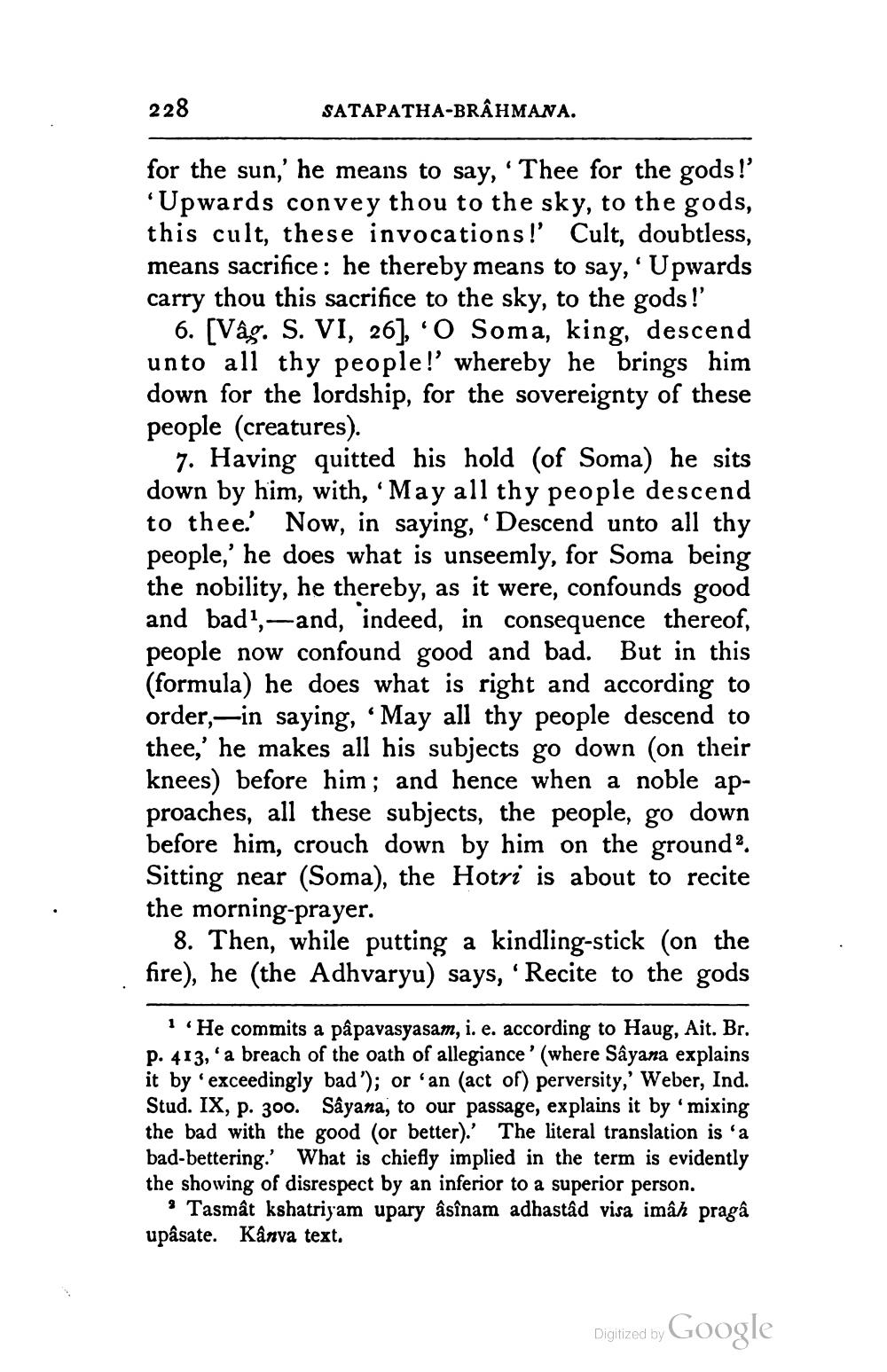________________
228
SATAPATHA-BRAHMANA.
for the sun,' he means to say, 'Thee for the gods!'
Upwards convey thou to the sky, to the gods, this cult, these invocations!' Cult, doubtless, means sacrifice: he thereby means to say, 'Upwards carry thou this sacrifice to the sky, to the gods!'
6. [Vâg. S. VI, 26], 'O Soma, king, descend unto all thy people!' whereby he brings him down for the lordship, for the sovereignty of these people (creatures).
7. Having quitted his hold (of Soma) he sits down by him, with, May all thy people descend to thee. Now, in saying, 'Descend unto all thy people,' he does what is unseemly, for Soma being the nobility, he thereby, as it were, confounds good and bad!, -and, indeed, in consequence thereof, people now confound good and bad. But in this (formula) he does what is right and according to order,-in saying, “May all thy people descend to thee,' he makes all his subjects go down (on their knees) before him; and hence when a noble approaches, all these subjects, the people, go down before him, crouch down by him on the ground. Sitting near (Soma), the Hotri is about to recite the morning-prayer.
8. Then, while putting a kindling-stick on the fire), he (the Adhvaryu) says, 'Recite to the gods
1He commits a pâpavasyasam, i. e. according to Haug, Ait. Br. p. 413,' a breach of the oath of allegiance' (where Sâyana explains it by 'exceedingly bad'); or 'an (act of) perversity,' Weber, Ind. Stud. IX, p. 300. Sâyana, to our passage, explains it by 'mixing the bad with the good or better). The literal translation is 'a bad-bettering. What is chiefly implied in the term is evidently the showing of disrespect by an inferior to a superior person.
? Tasmât kshatriyam upary âsînam adhastad visa imah praga upâsate. Kanva text.
Digitized by Google




